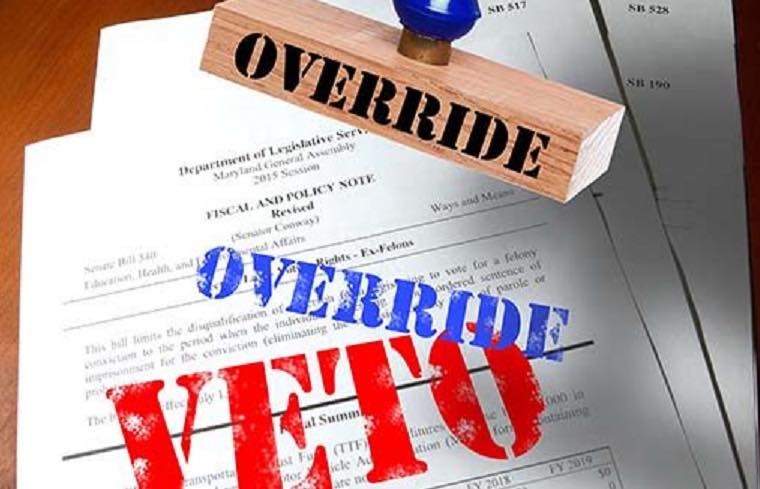
When it comes to overriding vetoes of open records legislation imperiling public access, what a difference two decades makes!
Compare Governor Paul Patton's veto of 00RS HB130, "An act relating to private data" to Governor Andy Beshear's veto of 21RS HB312, "An act relating to public records."
https://apps.legislature.ky.gov/record/00rs/HB130.htm
Patton vetoed HB 130 — which prohibited public agencies from selling or distributing personal information, including private wage data, gathered on agency forms and applications — because it conflicted with the open records law. He acknowledged at the time that the bill was well-intentioned.
HB 130 had sailed through the 2000 General Assembly with no dissenting votes, but the Kentucky Press Association opposed it.
Secure in the judicious exercise of its power, lawmakers in 2000 gave deference to Patton's veto of HB 130 whose purpose, at least, was a salutary one. They did so without rancorous debate.
Lawmakers in 2021 thumbed their noses at Beshear's veto of HB 312 — a bill which, in his words, "defeats the entire purpose of" the open records law — ignoring opponents' questions as well as their entreaties.
https://apps.legislature.ky.gov/record/21rs/hb312.html
HB 312 — which 11 members of the Senate and 27 members of the House originally opposed — is, by any standard, more corrosive and more directly targeted at undermining existing public rights than 00RS HB130 was ever thought to be.
Nevertheless, in what can best be described as an injudicious exercise of the power they now wield, both chambers overrode Beshear's veto on March 29 by a vote of 66-29 in the House and 22-16 in the Senate.
HB 312 has been widely criticized since it was quietly — some one say "covertly"— introduced as a committee sub to the original HB 312, "An act relating to financial institutions." The committee sub gutted the original bill's language and substituted language aimed at weakening — some would say "undermining" — the existing open records law.
Opponents of the committee sub to HB 312 focused on the introduction of a "resident users only" open records requirement, the imposition of a mandatory — later permissive — standardized open records request form, the extension of the three business day deadline to five business days, and elimination of the right of judicial review of the denial of requests for records of the Legislative Research Commission and General Assembly.
Let each person be their own judge of whether these amendments weaken the open records law. In our view, they do.
And, like them or not, they will take effect on June 29.
Even more disturbing, these amendments likely signal greater erosion of our open records rights in future legislative sessions.
Where, again, is the impediment?
Clearly, not in the sound judgment, much less the conscience, of the House and Senate Majority.


